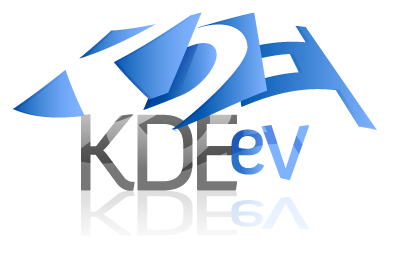This is a guest post from Kevin Carillo, a researcher I’ve been working with to help us improve KDE’s newcomer experience. If you fit the criteria please do take the survey. It’ll help improve the experience of new contributors and thereby help improve KDE. Thanks!
My name is Kevin Carillo. I am a PhD student currently living in Wellington (New Zealand) and I am doing some research on Free/Open Source Software communities.
If you have joined the KDE community after January 2010 (within approximately the last 3 years), I would like to kindly request your help. I am interested in hearing from people who are either technical or non-technical contributors, and who have had either positive or negative newcomer experiences.
The purpose of the research is to work out how newcomers to a FOSS community become valued sustainable contributors.
The survey can be found at:
https://limesurvey.sim.vuw.ac.nz/index.php?sid=65151&lang=en
A quest for community citizens
KDE is a successful community that keeps attracting new contributors and that has a reputation of being extremely newcomer-friendly. But is this enough to make sure that KDE remains a healthy and growing project?
Suppose a community manages to attract 20 new members every month and suppose a large number of them do not comply to the code of conduct, commit changes without considering the people or modules/components being affected by the commits, do not attend or contribute to any of the community events, do not assist any other members when they seek for help, do not treat other members with respect … It will not take a lot of time until the health of the community will be affected and the future of the project seriously jeopardized.
The main assumption that motivated this project is that attracting new members has become crucial for a large majority of FOSS communities but this is not a sufficient condition to ensure the success and prosperity of a project.
So, yes … it is important to attract newcomers but a community needs to make sure that a certain proportion of these newcomers become ‘good’ contributors from the community perspective. ‘Good’ in the sense that they shall contribute to the well-being and growth of the community. ‘Good’ as good community citizens.
What do newcomers have to say about their experience?
Keeping all that in mind, FOSS projects have thus to do a good job at ‘socializing’ their newcomers and turning them into contributors. Doing a good job here means that FOSS projects shall ensure that they help generate those citizenship behaviors from newcomers by designing appropriate newcomer programmes and procedures.
KDE has a lot of initiatives to facilitate the integration of newcomers with its active involvement in GSoC or SoK, the availablity of a wide array of resources dedicated to helping newcomers, or the use of junior jobs to help involve new contributors.
However, it seems that the other side of the coin is less understood by communities: the actual experience of newcomers.
How are the contributions and the behavior of a new member affected if he or she has received formal mentoring by one or several experienced members? Are junior jobs really helping integrate newcomers? How important is the support of a community towards its newcomers? This is what I am trying to find out.
How is this study going to help KDE?
The data will help gain insights about the experience of newcomers within the KDE community. In addition, it will allow to understand how to design effective newcomer initiatives to ensure that KDE will remain a successful and healthy community.
The dataset will be released under a share-alike ODbL license so that KDE contributors can extract as much value as possible from the data.
Since this survey involves other large FOSS projects such as Mozilla, Debian, Gnome, Ubuntu, or Gentoo to name but a few, it will also be possible to compare practices across projects in order to identify what works from what does not work when facilitating the integration of newcomers.
About the survey
This survey is anonymous, and no information that would identify you is being collected. I expect the survey to take around 20 minutes of your time.
The survey is available at:
https://limesurvey.sim.vuw.ac.nz/index.php?sid=65151&lang=en
It will be available until Tuesday, 22 November, 2012.
If you know members of the KDE community who you think would be interested in completing it, please do not hesitate to let them know about this research.
I will post news about my progress with this research, and the results on my blog: http://kevincarillo.org. Don’t hesitate to contact me at kevin.carillo@vuw.ac.nz.
